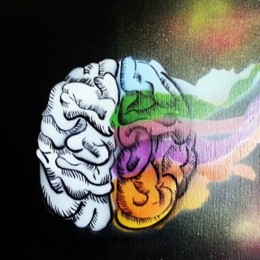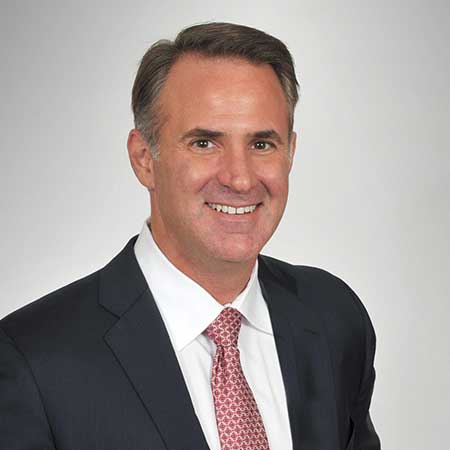Throughout this series of articles, we will cover the most common injuries that occur after an auto accident. Car crashes are tough on the body, no matter what speed you’re traveling at. Because of this, the severity of injuries in accidents is usually far worse.

Injuries that occur from auto accidents can be a long list of things. Generally, people think about spine, neck, head, and back injuries when they think of a car crash. One of the most common injuries is not a physical one, but a mental and emotional one.
Post-traumatic stress disorder (PTSD) is extremely normal after a wreck. Traffic collisions are frightening moments in people’s lives, especially severe ones. A crash can leave a lifetime worth of mental pain. As if it happened yesterday, the memories seem to be fresh in the mind. PTSD is triggered by those terrifying events that unfold. Commonly, most associate PTSD with war veterans. The shock of seeing dead bodies and blood-stained fields is something nobody should have to endure. Yet, auto accidents happen to far more people than wars do.
PTSD can lead to a multitude of complications in someone’s life. Nightmares can lead to a lack of sleep and energy. Negative thoughts can cloud even the sharpest minds. The seriousness of PTSD does not need to be explained; those who have experienced it, would call it a living hell.
Yearly, there are six million accidents throughout the United States. Every person is bound to experience one in their lives. If you’ve been in the unfortunate incident of a severe car accident, you could recover all of your economic losses. PTSD after an accident is a regular occurrence. Even after the medical bills and vehicle damages are done with, the leftover agony can still cause harm. An experienced personal injury attorney can get you the compensation you deserve for that lasting pain. Dennis Hernandez & Associates has an aggressive team of Tampa, Orlando, Sarasota, St. Petersburg, and Lakeland lawyers. At every location, you will be treated as a person, not a case number.
Statistics
According to The National Institute of Mental Health, an estimated 3.6% of American adults had/have PTSD in the past year. It is said that 70% of Americans will experience one traumatic event in their lifetime. About 44.7 million people have, in the past or currently, struggled with post-traumatic stress.
After a traffic collision, both children and adults are susceptible to PTSD. About 20% of children that have been involved in auto accidents are diagnosed with PTSD, while about 22% of adults are diagnosed after a crash. Just behind sexual assault, car wrecks are the second leading cause of PTSD in the United States. The recent focus has been put on prior military personnel, but the commonality of auto accidents makes the percentage of experiencing post-traumatic stress far greater.
Gender seems to be a popular topic within the post-traumatic stress ideology. The gender split is fairly neutral, though. Men are more likely to experience a traumatic event, but they are less likely to encounter psychological trauma from that event. On the other hand, women are less likely to experience a traumatic event, but they are more likely to gain psychological trauma because of it.
An interesting scientific discovery has created some answers to why some people experience PTSD after traumatic events, while some people don’t at all. The research found that the smaller the hippocampi in the person, the more likely they were to experience post-traumatic stress. The hippocampus on either side of the human brain is essential to our memory cortex. Without the hippocampus, our memories would be nearly non-existent. The link between PTSD and the size of the hippocampi has shown to be directly related.
Diagnosis

Diagnosis of post-traumatic stress disorder can, itself, be traumatic. Often, doctors will require you to be exposed to an event that you were involved in, particularly, the situation that led to you developing psychological stress. Exposure can be triggered by directly undergoing the event again, witnessing it happening to others, or facing graphic details of similar events.
Diagnosis of PTSD will usually be determined by a psychologist. Doctors will perform the initial physical and mental examination, but proper details will be ironed out by a trained psychologist. If reminders of the event continue to affect your ability to function, socialize, work, or be in relationships, you could be diagnosed with post-traumatic stress disorder.
Causes of PTSD
The size of the hippocampus within the brain is proven to be related to PTSD, yet there are too many complex mixes of experiences that can cause psychological trauma to count. PTSD can occur after one short event like a car accident, or it can happen over time and through learned events. Overall, the main causes of post-traumatic stress are as follows:
Auto Accidents
- Severe auto accidents are highly memorable events that can trigger stress at any moment. With the high number of drivers on the road in America, PTSD is rising amongst car crash victims. Several websites or valuable resources contain sections to gain information here about how people suffer physically, mentally, and emotionally. Another vital step can be reaching out to a trusted attorney to make sure you seek compensation for auto accident damages.
Sexual/physical assault
- Most often seen with rape cases, sexual or physical assault is the leading cause of PTSD in the nation. Individuals exposed to such situations are predisposed to developing post-traumatic stress.
War/Combat exposure
- Recently, post-traumatic stress statistics have been rising steadily with combat veterans. Blood, bodies, and violence is a recipe for disturbing memories. Often, memories that will not easily dissipate.
Stressful experiences
- Stressful things like losing a child, having a still-born, death of a loved one, and life-threatening illnesses will often lead to PTSD. The harmful memories that are left behind after this enormous stress are triggered by even the smallest things.
Symptoms & Complications
Again, the details of post-traumatic stress disorder are so vast, that exact details of what will happen are impossible to directly pinpoint. The most you can do is find commonality in the average cases. Symptoms can begin immediately, after one month, or even years after a traumatic event. You may not show any signs until something happens that triggers your memory.
From case to case, symptoms vary drastically; The Mayo Clinic breaks down symptoms into four groups:
● Intrusive memories
- These are recurrent and unwanted memories that make you relive the event again and again. Often, they show up in flashbacks or nightmares. This can be the worst symptom to have because it will cause sleep deprivation.
● Avoidance
- Avoidance is self-explanatory. Often, PTSD victims will avoid thinking and talking about any related events to their traumatic experience. They will even avoid places or activities that trigger memories.
● Negative thinking/moods
- Negativity about others and the world in general is extremely common in post-traumatic stress cases. Hopelessness, feeling alone, feeling detached, and numbness are all signs.
● Change in emotional/physical responses
- Reactions and responses of PTSD victims often change dramatically. They become frightened easily, angry, on guard for dangerous things, and will often pick up a destructive habit such as drinking.
Recovery
Post-traumatic stress disorder is a lengthy disease. It will not disappear overnight; it takes time and work. The recovery of the disorder will include psychological exercises, medication, and therapy. The treatment will help you learn to control the symptoms, help you think positively, and learn ways to treat other issues. PTSD is a dangerous injury that occurs after auto accidents. Do not take your feelings lightly; get the help you need and get your life back.
Author’s Bio

DENNIS HERNANDEZ
Dennis started practicing law at just 23 years old. He obtained his undergraduate degree from Duke University and continued to earn law degrees from Florida State University College of Law and Harvard Law School. Blessed with multiple associations, memberships and awards, Dennis graduated from the Trial Lawyers College
